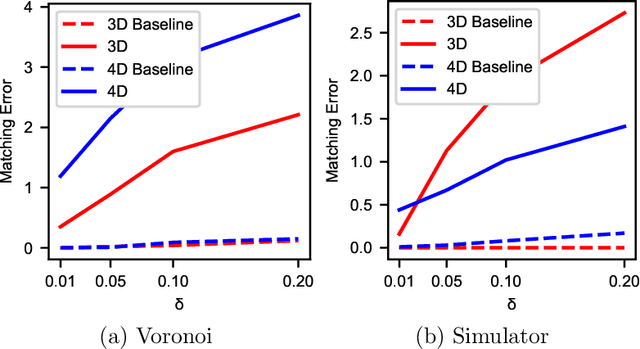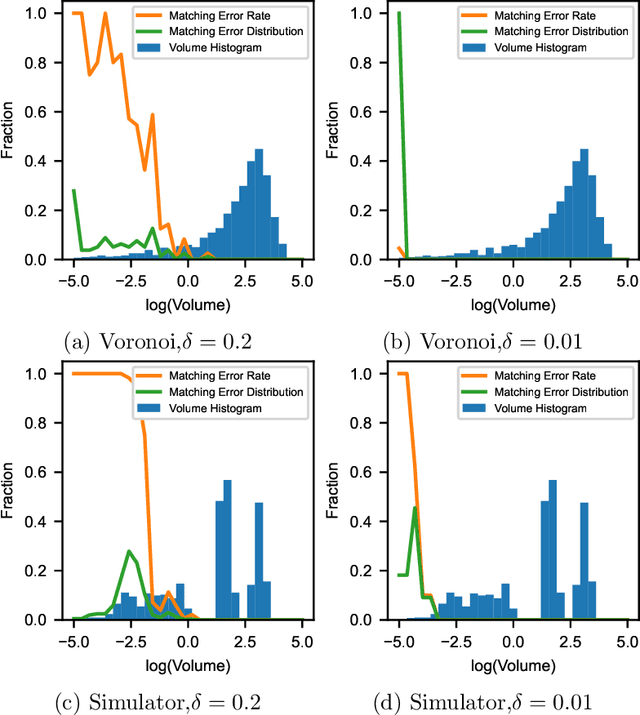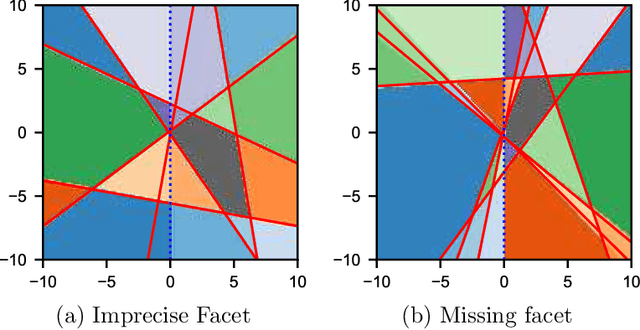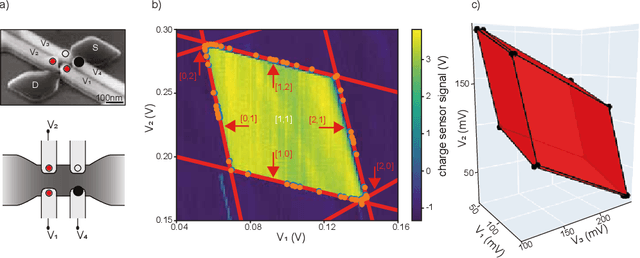Estimation of Convex Polytopes for Automatic Discovery of Charge State Transitions in Quantum Dot Arrays
Paper and Code
Aug 20, 2021



In spin based quantum dot arrays, a leading technology for quantum computation applications, material or fabrication imprecisions affect the behaviour of the device, which is compensated via tuning parameters. Automatic tuning of these device parameters constitutes a formidable challenge for machine-learning. Here, we present the first practical algorithm for controlling the transition of electrons in a spin qubit array. We exploit a connection to computational geometry and phrase the task as estimating a convex polytope from measurements. Our proposed algorithm uses active learning, to find the count, shapes and sizes of all facets of a given polytope. We test our algorithm on artifical polytopes as well as a real 2x2 spin qubit array. Our results show that we can reliably find the facets of the polytope, including small facets with sizes on the order of the measurement precision. We discuss the implications of the NP-hardness of the underlying estimation problem and outline design considerations, limitations and tuning strategies for controlling future large-scale spin qubit devices.
 Add to Chrome
Add to Chrome Add to Firefox
Add to Firefox Add to Edge
Add to Edge